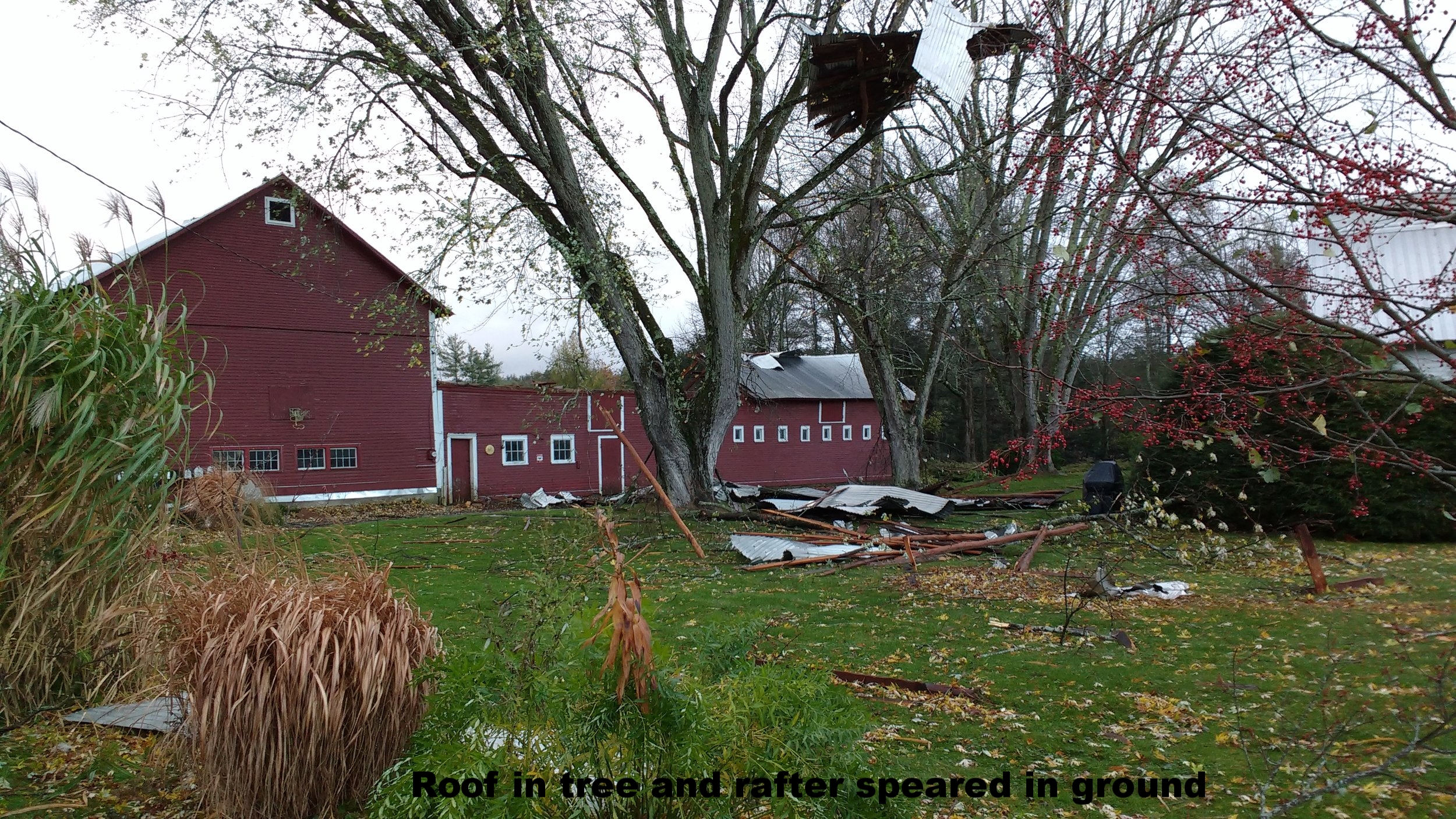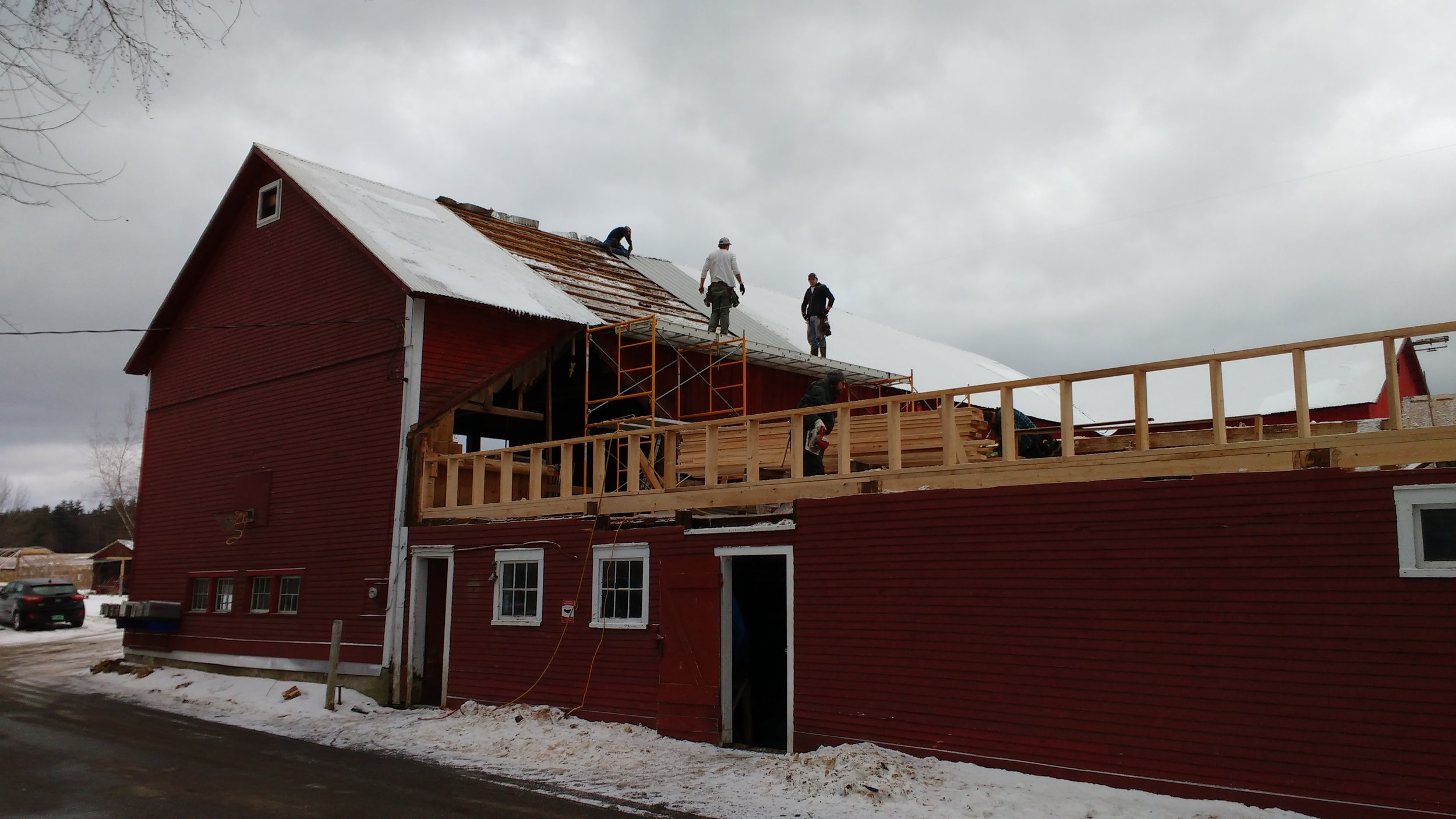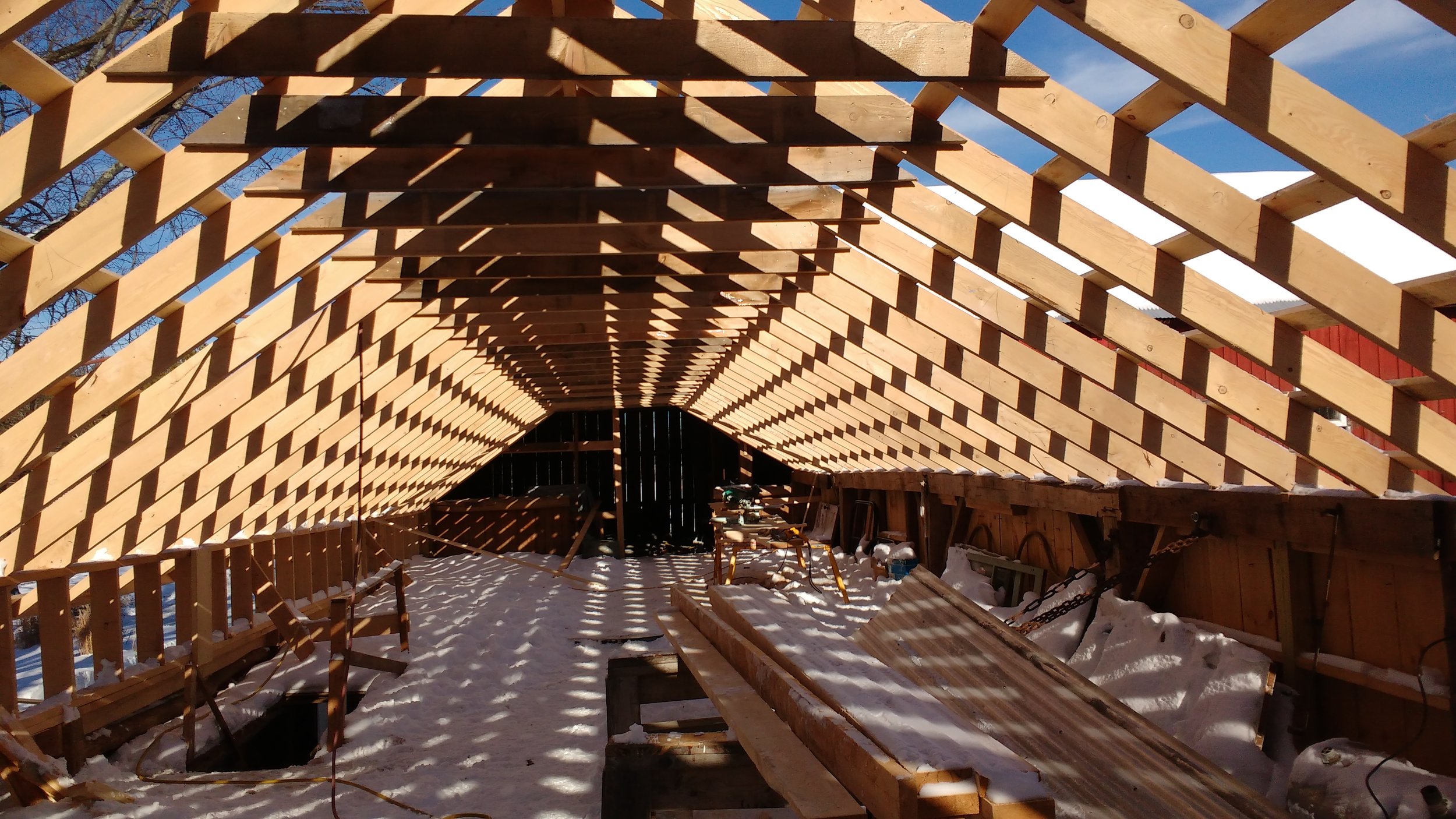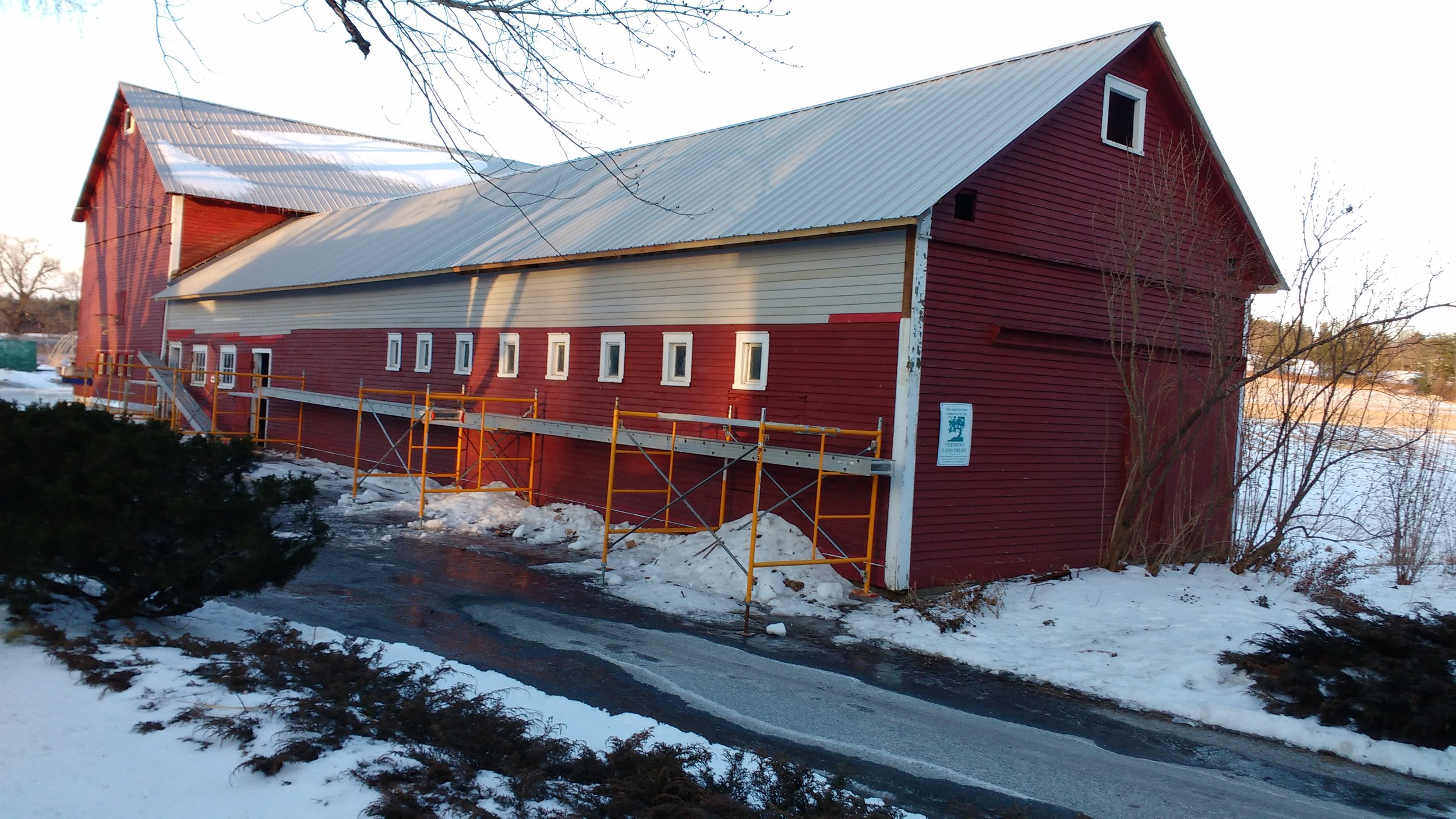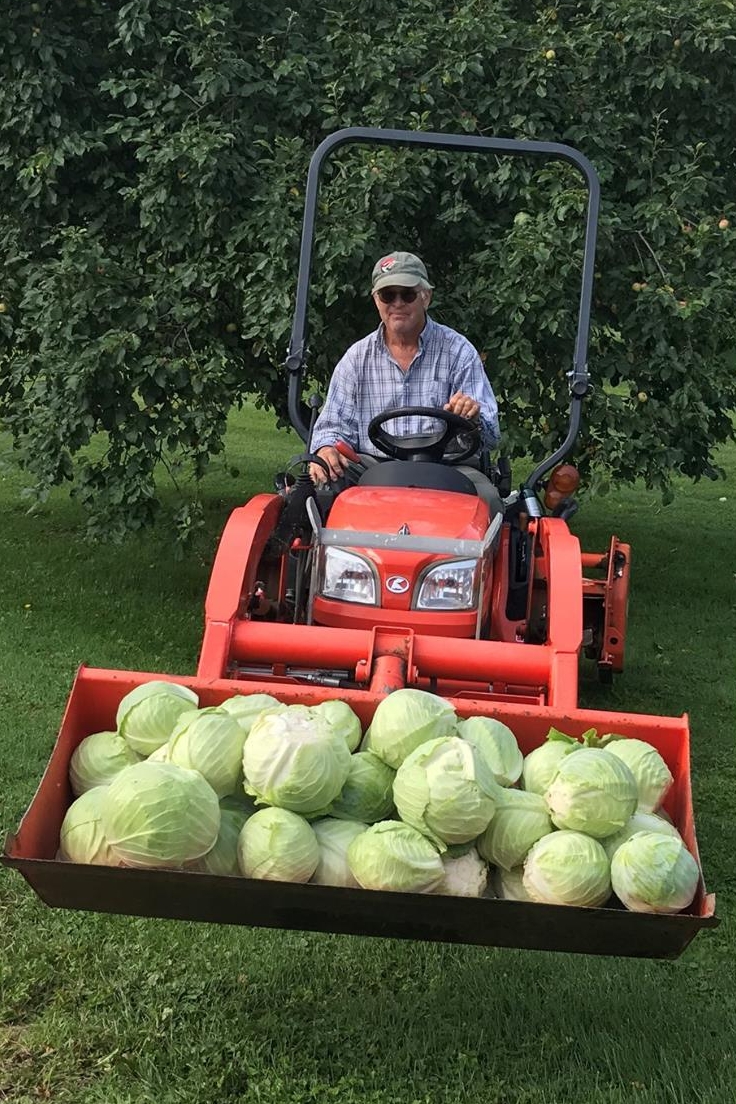Barber Farm in Jericho has deepened its commitment to grow and donate vegetables to Vermonters who need them. A new transplanting machine will allow significant expansion of cabbage and winter squash plantings. Saving lots of stoop labor was also a significant consideration.
We‘re getting mechanized with a vacuum seeding apparatus that will cut the time sowing greenhouse flats to a fraction.
We have secured commitments for a regular schedule of harvest volunteers who will be picking succession plantings of 2000 cabbage made every other week from mid-May to mid-August. We’ll also be planting green beans with the same frequency, 500 row feet at a sowing.
Last year we planted 1500 pounds of seed potatoes and lost half to rot from May’s incessant rains. We intend to plant a ton this year and have a spot of high, dry ground to work.
The squash plantings will expand to an acre and a half, combined, of Butternut and Buttercup while the number of bell peppers and tomatoes will stay at 1000 and 500 respectively.
Fencing supplies to keep animals out of the field will be ordered this coming week, an electric system with enough zap to make it educational. It is going to be a busy spring!
We are a non-profit and furnish our machinery, land and labor at no charge. We donate thousands of servings of organically grown vegetables each year to Salvation Farms, the Chittenden Emergency Food Shelf and local food pantries as well. Any assistance you can provide for the project will be devoted 100% to crop-related expenses with our sincere gratitude. Thanks!

